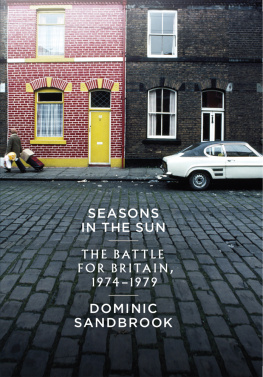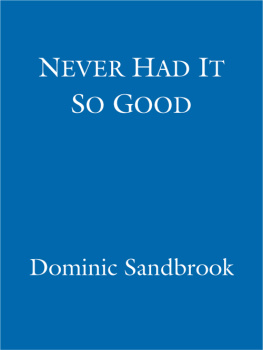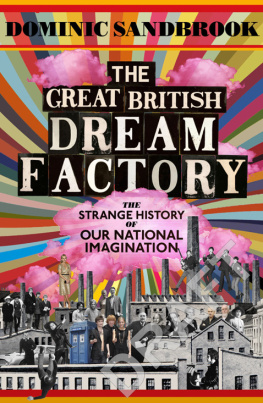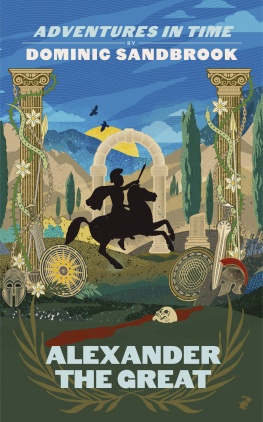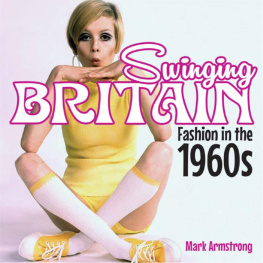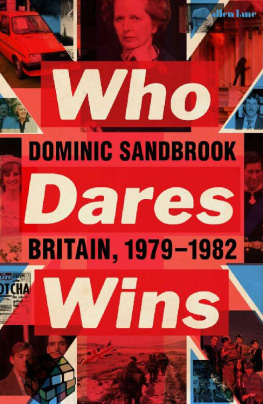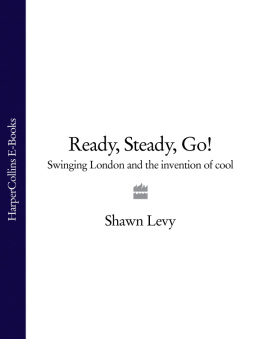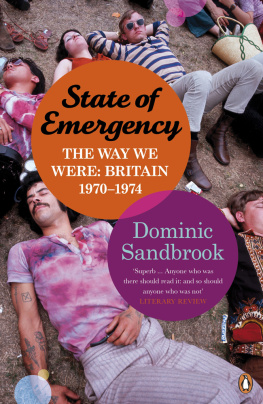Born in Shropshire in 1974, Dominic Sandbrook was educated at Balliol College, Oxford, the University of St Andrews and Jesus College, Cambridge. He taught history at the University of Sheffield and is currently a Senior Fellow at the Rothermere Institute, University of Oxford. He lives in north Oxfordshire. The first volume of Dominic Sandbrooks critically acclaimed history of the 1960s, Never Had It So Good: A History of Britain from Suez to the Beatles, is also available from Abacus.
White Heat is a triumph. Its 800-odd pages successfully integrate a blow-by-blow political history of the era dominated by Harold Wilson with an amazingly full social and cultural history of the same period Extraordinarily enlightening as this splendid book reminds us, it was fun while it lasted
Jane Stevenson, Daily Telegraph
They say that if you can remember the sixties you werent there. For all those in need of reminding, Dominic Sandbrooks brilliant analysis of the era looks at political and everyday life as well as the free love, dope-fuelled existence of the pop stars, models and hippies
Books of the Year, Daily Mail
An active pleasure to read. This is a deftly written and evocative account of the day before yesterday, a period about which we including our governing class know far too little
Books of the Year, Mail on Sunday
Humorously written exposition of the creative and optimistic society that emerged after the Second World War, but which could not find the economic answer to post-imperial decline
Books of the Year, Financial Times
An epic account of mid-twentieth century Britain which is hugely enjoyable, funny, contentious, and shows a sharp eye for telling detail
Books of the Year, Sunday Herald
Entertaining
D. J. Taylor, Books of the Year, Times Literary Supplement
Dominic Sandbrook demolishes the myth that traditional society was swept aside by flower power, free love and student unrest
Leo McKinstry, The Times
A socio-politico-cultural extravaganza on the sixties. While the key images are given full weight, Sandbrook reveals that most of the nation remained warily conservative. Riveting even if you didnt live through it
John Walsh, Independent
Sandbrook was not around at the time, which may account for his wonderful gift for breathing new life into these all-too-familiar stories, and also for the fresh eye which allows him to take a new angle on all the hoary old myths He covers every aspect of the Swinging Sixties, scrupulously careful throughout to avoid either demonising or romanticising what was almost certainly the least distinguished and most worthless cast of characters ever to take centre stage in British history An extraordinary story not to be missed
Peregrine Worsthorne, Evening Standard
We were knocked out by the young Oxford historians first book, a blockbuster on the years 195663, Never Had It So Good. This proved a winning format and he has followed through on his success in the same easy-to-read style Sandbrook tells this story with unflagging relish [and] undaunted zeal This is history of a commendably inclusive range. There is something for everybody
Peter Clarke, Sunday Times
An outstanding feat on the part of a young man who has not only read, marked and learnt but has also inwardly digested a decade and more of recent British history to the great benefit of the rest of us If you want an updated version of the Bayeux Tapestry then this is the book for you
Anthony Howard, Sunday Telegraph
The financial crisis that the Labour administrations of the 1960s stumbled and reeled their way through are the backbone of Dominic Sandbrooks wondrously all-encompassing account of the decade in Britain The grip derives from Sandbrooks sense of drama, the sense of drama from his ability to see both sides of an argument What we need now is an explanation for why the seventies were such a washout. Come on Sandbrook: the age of flares awaits your flair for ages
Christopher Bray, New Statesman
Skilfully marshals a vast array of facts into a clear and competent narrative covering not just politics, but the arts, social trends, fashion and popular culture Written with sense and judgement
Vernon Bogdanor, Financial Times
His chosen period coincided with a wave of self-conscious novelty and experiment, and the book, well organised and balanced, sets up a counterpoint between public events and developments in fashion, social attitudes and culture (both high and popular)
Adam Mars-Jones, Observer
Published by Abacus
ISBN: 978-0-349-14128-2
Copyright Dominic Sandbrook 2006
The moral right of the author has been asserted.
All rights reserved. No part of this publication may be reproduced, stored in a retrieval system, or transmitted, in any form or by any means, without the prior permission in writing of the publisher.
The publisher is not responsible for websites (or their content) that are not owned by the publisher.
Abacus
Little, Brown Book Group
100 Victoria Embankment
London, EC4Y 0DY
www.littlebrown.co.uk
www.hachette.co.uk
In memory of my grandfather
Norman Daker, 19151996
CONTENTS
Like its predecessor, Never Had It So Good, this book was conceived and partially written while I was a lecturer in history at the University of Sheffield. As before, I am delighted to thank my erstwhile colleagues for their advice and support, notably Pertti Ahonen, Mike Braddick, Flurin Condrau, Simon Hall, Ian Kershaw, Zo Laidlaw, Simon Loseby, Patrick Renshaw, Barbara Schmucki, Ted Vallance and Nik Wachsmann. Robert Cook, Hugh Wilford and Joe Street were particularly generous with their encouragement and I have benefited from their close knowledge of Birmingham, beards and the Black Country. Karen Harvey was a great source of help on mini-skirts.
My former associates in the Age of Nixon, whose commitment to the late president reached mind-boggling proportions, ensured that I departed South Yorkshire in suitably melodramatic style. Afterwards, I was lucky to benefit from the superb facilities and support of the Rothermere American Institute at Oxford. In particular, I am grateful to Paul Giles, Cheryl Hudson, Andrea Beighton and Laura Lauer, while Richard Carwardine, Gareth Davies and Stephen Tuck could hardly have been more welcoming. My thanks also go to the various librarians in London, Oxford, Cambridge and Sheffield without whom researching this book would have been so much more difficult, and of course to the hundreds of historians whose works I have used. Anyone writing a book of this kind runs up enormous debts to those who have gone before, and I have tried to acknowledge them in the endnotes and bibliography.
For their comments on drafts of the manuscript, I am grateful to Andrew Clark, Joe Guinan, Simon Hall, Simon Hooper, Martin ONeill, Andrew Preston and Hugh Wilford. For hospitality during my various research trips, I am indebted to Simon Hooper and Lauren Stewart; James Davis, Kaele Stokes and Ed Meek; and Nathan Bavidge and Vicky Scahill. Pat Thane and her colleagues at the Institute of Historical Research made me very welcome and asked difficult questions when I came to talk about my work. Max Hastings, Tom Holland and Richard Thorpe were terrific sources of encouragement and advice. Thomas Matthews-Boehmer gave me the benefit of his rigorous historical judgement. And Sam Leith, Caroline Gascoigne, Andrew Holgate, Katie Law and Andy Neather kept me well supplied with books and other distractions.
As always, I am grateful to Andrew Wylie and his staff for their immense professionalism and for enabling me to write for a living. I am particularly indebted to Michal Shavit for all her support and hard work over the last few years. The team at Little, Brown were as friendly, helpful and accomplished as ever, and I want to thank Sarah Allman, Richard Beswick, Caroline Brown, Roger Cazalet, Kerry Chapple, Jenny Fry, Steve Guise, Duncan Spilling and Stephanie Young, as well as anyone else I may have overlooked. Susan de Soissons is a publicist without peer, and Iain Hunt guided the manuscript to publication with his usual supreme patience and skill.
Next page

